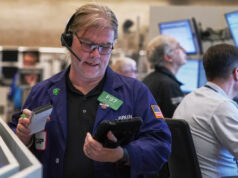
When the Miami Heat charge into the NBA playoffs, the excitement goes far beyond the hardwood. The team’s success sparks a powerful economic engine that fuels South Florida’s growth, touching industries from tourism and hospitality to media, merchandise, and real estate. Millions pour into Miami, businesses flourish, and jobs multiply as playoff games transform into cultural and financial events. According to several NBA projections, the visibility of a successful Heat season translates to long-term tourism benefits, as millions look for Miami’s culture and excitement.
A Surge in Tourism Spending
When the Heat ignite a playoff run, the ripple effect hits South Florida’s tourism sector hard—matching global events in drawing spending power. Fans flock from across the country and the world, filling hotel rooms, booking flights, dining out, and exploring Miami’s rich attractions. Economic data detail how that surge amplifies dollar flows, tax receipts, and year-round appeal.
Miami welcomed 27.2 million visitors in 2023, marking a 2 percent increase over 2022, and generating $21.1 billion in direct visitor spending. That influx translated into 17.3 million hotel room nights sold—a modest 0.3 percent rise year-over-year. Even broader, tourism accounted for nearly $30 billion in overall economic impact and more than $19 billion in GDP, representing 9 percent of Miami-Dade’s total GDP.
Tax Revenue Windfall
Playoff fervor doesn’t just lift spirits—it fills municipal coffers. The widespread spending on travel, hospitality, and attractions cascades into significant tax gains, providing residents relief and funding for essential services.
In 2023, visitor-driven activity contributed nearly $5 billion in tax revenue, translating to an average household savings of $2,233 per year and $786 per individual. These savings demonstrate how deeply Miami’s playoff momentum drives public benefits, boosting resources for infrastructure and social programs.
Employment and Wages Multiply
Playoff time means more than just packed stands—it drives hiring across the hospitality, transportation, and retail sectors. From bartenders to hotel staff, South Florida’s workforce feels the surge firsthand.
Tourism in Miami-Dade supports over 200,000 jobs, generating a total of $11 billion in wages. These jobs span hotels, restaurants, bars, entertainment venues, and transportation services, making playoff seasons a lifeline for thousands of households across the region.
Hospitality Market Indicators
Miami’s hotel economy adapts to playoff momentum with key indicators rising. Average daily rates climb, revenue per available room improves, and occupancy trends shift—mirroring the Heat’s success.
In Q2 2025, Florida’s average daily rates (ADR) rose 3 percent year-over-year to $196.41. Revenue per available room (RevPAR) also saw a 3 percent increase to $134.97. Occupancy averaged 67.4 percent across the region. At the same time, rooms under construction dropped from 50,161 to 46,599—a 7 percent quarter-over-quarter decrease, showing an evolving balance between demand and future supply.
Boost to Local Businesses and Bars
When playoff games heat up, local businesses—from bars and restaurants to vendors—see a surge in patrons and profits. Revenue spikes echo the on-court action, turning neighborhood hangouts into economic players.
Elwoods Gastro Pub, among others, saw Heat playoff games alone increase its revenue by $1 million. Owners highlight how deep playoff runs bring in both loyal fans and tourists, sustaining revenues during peak postseason months and even driving off-season brand loyalty.
Ticket Sales, Merchandise,
The playoffs elevate ticket and merchandise demand to new heights. Fans clamor for seats and swag, jerseys fly off racks—and auction values NBA fantasy adds another dimension to the Heat’s economic efficacy.
Playoff games drive hyper-demand for tickets and merchandise, fueling team revenue and creating vendor income streams. Jerseys, caps, and limited-edition collectibles frequently sell out. Simultaneously, auction-based fantasy leagues see a spike in player valuations tied directly to Heat performance, reflecting the immense popularity of postseason play.
Media Coverage and Global Visibility
National and international broadcasts spotlighting the Heat put Miami in front of millions, enhancing its image as an attractive destination for tourism, investment, and relocation—well beyond the final buzzer.
Televised playoff coverage magnifies Miami’s landmarks, nightlife, and cultural energy, boosting its global appeal. Exposure from ESPN, TNT, and ABC helps Miami solidify its brand identity as a hub of both entertainment and opportunity, attracting long-term visitors and corporate investors alike.
Job Creation Beyond Stadiums
Jobs tied to playoff energy extend well beyond arena staff—encompassing transportation, marketing, merchandising, and hospitality. These roles foster economic resilience and community growth.
Professional sports teams generate roles in event management, marketing, ticketing, stadium operations, and surrounding hospitality venues. Each Heat playoff run ripples through the job market, allowing workers across sectors to capitalize on heightened activity.
Real Estate and Development Momentum
Playoff success boosts not just short-term spending, but long-term investment sentiment. Real estate values and development activity rise as Miami’s desirability grows, particularly near arenas and mixed-use zones.
Successful sports franchises raise property demand, spurring mixed-use district growth around arenas and uplifting real estate markets. Developers, investors, and residents alike benefit as Miami evolves into an even more dynamic urban destination.
Statewide Sports Economic Contribution
Miami’s playoff impact plays into a broader statewide picture—Florida’s sports ecosystem generates hundreds of billions annually, reinforcing how local success multiplies into statewide gains.
Florida’s sports industry generated $146.5 billion in economic impact across FY 2019-20 and 2020-21, supporting 978,200 jobs and contributing $13.9 billion in state and local taxes. The Heat’s playoff prominence underscores how a single franchise can shape economic strategies across the Sunshine State.
Long-Term Tourism Growth
Beyond playoff spurts, Miami’s tourism numbers keep rising thanks to big-budget campaigns, global marketing, and its sports success narrative—fueling future travel increases and economic resilience.
Miami tourism revenue climbed from $10 billion in 2000 to $18 billion in 2019, and $21 billion in 2023. Visitor numbers were 10.5 million in 2000, 24.2 million in 2019, and 27.2 million in 2023. Projections suggest 28–30 million visitors in 2025. Hospitality employment expanded from around 100,000 jobs in 2000 to 142,000 in 2010 and over 200,000 by 2023, demonstrating the long-term growth trajectory driven by Heat-fueled tourism boosts.
Playoff Wins as Economic Catalyst
Miami Heat playoff runs spark a chain reaction—from hotel bookings and bar tabs to tax revenues, real estate buzz, and global tourism trends. “Heat Rising: How Miami’s NBA Playoff Success Fuels South Florida’s Economy” highlights how sports achievements become economic engine rooms—supporting jobs, boosting spending, strengthening identity, and lighting a path toward lasting prosperity in South Florida.
Disclaimer
The information contained in South Florida Reporter is for general information purposes only.
The South Florida Reporter assumes no responsibility for errors or omissions in the contents of the Service.
In no event shall the South Florida Reporter be liable for any special, direct, indirect, consequential, or incidental damages or any damages whatsoever, whether in an action of contract, negligence or other tort, arising out of or in connection with the use of the Service or the contents of the Service.
The Company reserves the right to make additions, deletions, or modifications to the contents of the Service at any time without prior notice.
The Company does not warrant that the Service is free of viruses or other harmful components












